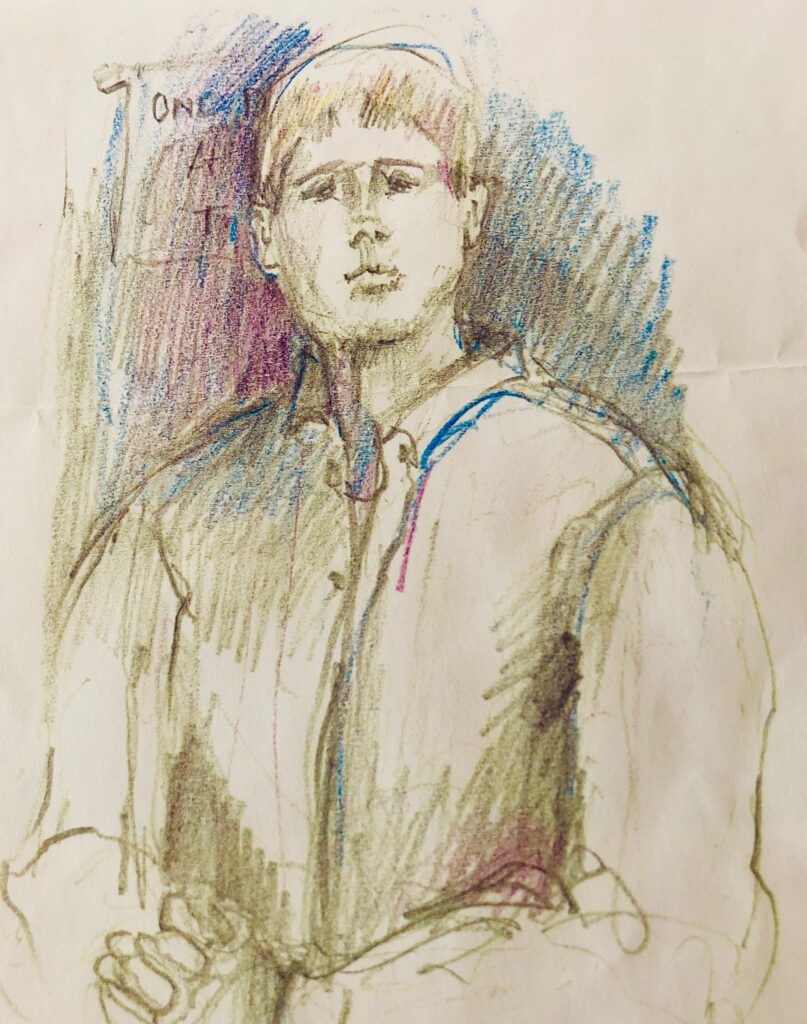
Two Brothers: A Story of Loss and Recovery
By Kerry J. Bickford, VOICES Editor
This is a story about the opioid crisis and how it impacted two brothers who grew up in a small community by the sea. They spent their childhood years swimming in the vast ocean, playing hockey on the frozen bogs, and practicing one sport or another with their buddies. They did well in school, even excelled, and dreamed that they might play college or even professional sports one day. They were good boys -- though they would occasionally get into some kind of mischief or another.
As they grew older, the brothers began getting into more than just mischief. There was an opioid problem in their community, and many began to struggle. The older brother was first to fall victim, and the younger one eventually followed in his footsteps. What no one knew, including him, was that there was a time bomb ticking in his brain. It was his own choice the first time he experimented with drugs, but he was a prisoner every time after. He became profoundly dependent on substances to help him get up in the morning, socialize, do his schoolwork -- even go to sleep at night. When his world became unmanageable, his parents quickly reached out to the community for the resources needed to help.
So the younger brother began to focus on his recovery with plenty of support. He attended meetings, went to college, held a job, and practiced self-care every day at the gym. There is no question that he wanted to be substance-free, even when he relapsed and slowly began to disappear. Still, he never gave up, and neither did his family.
At one point, the younger brother connected with a fantastic clinic in the city where he lived and found a team of providers who truly cared about him. He liked and trusted them. He agreed to get on medication-assisted therapy and managed to stay on it until his dying day. But tragically, his heart had become weak from the drugs he had used, and he was taking other prescriptions that eventually led to his death. To the never-ending sorrow of his family, and although he was loved beyond measure, no one was there to say goodbye when he left.
When Nathan, the younger brother, died, Caleb, the older brother, became distraught and could not attend the memorial service. He felt responsible for his death in some ways because he was his brother’s keeper, after all. It came as no surprise to the boys’ family to learn that they had used together and leaned on each other in desperate times. This haunted Caleb and poked holes in his recovery. He relapsed several more times over the next two years, always on his brother’s birthday or the anniversary of his earthly departure. It didn’t help to assure him that he was not, in fact, responsible. He was plagued by the should haves, could haves, and would haves, and it took a long time for him to understand that everyone feels this way after the death of someone we love. We go over every last detail in our minds -- over and over again. We cannot change the trajectory, but we do this anyway. We are in shock and disbelief, and magical thinking tells us that we can reverse the outcome -- until we realize that we cannot. This is what Caleb had to learn.
So he changed his habits and committed to finishing what Nathan had started. He didn’t just do this for his little brother; he did it for himself. Caleb realized he was not the best version of who he could be and recognized he had made many mistakes. He had lost much along the way, and it was painful to be sober and think about some of the things he had done. It would take the rest of his life to right some of these wrongs, but he was willing, at least, to give it a try.
It took a while, but Caleb made the transition into long-term treatment. That is not the end of the story, for addiction is cunning, and it’s a disease of relapse -- even in recovery programs. Caleb moved from place to place and learned that the rules were all the same. Old habits die hard, and his were not ready to die, but neither was he -- so he kept going.
Caleb is still patiently working on his recovery -- one day at a time. He wears his love for his brother like a badge of courage on his heart, and he knows that, in the end, he is only responsible for his own decisions. Although others have influence, free will enables him to decide his response to each temptation he encounters -- both in life and recovery. He can choose to give in to that craving or work through it like a boxer in the knock-out round.
In the end, the choice is his, and he knows this.
